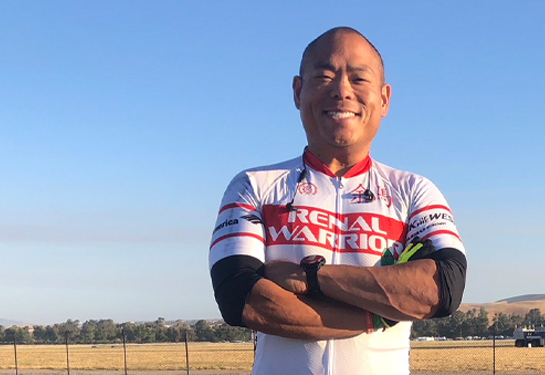Man loses 135 pounds for kidney transplant
How a ‘Renal Warrior’ turned the tragedy of kidney failure into triumph
On March 11, Wilson Du emerged from UC Davis Medical Center with a new kidney and a new lease on life.
But the six-year journey that led to the 40-year old’s life-saving transplant surgery began with a life-threatening crisis.
“I tried to get out the bed and I couldn’t walk,” Du recalled of one morning in June of 2016. “I was completely blindsided.”
Du’s high-stress and unhealthy lifestyle had caught up with him. Three months later, his kidneys shut down. The diagnosis: kidney failure as a result of untreated high blood pressure.
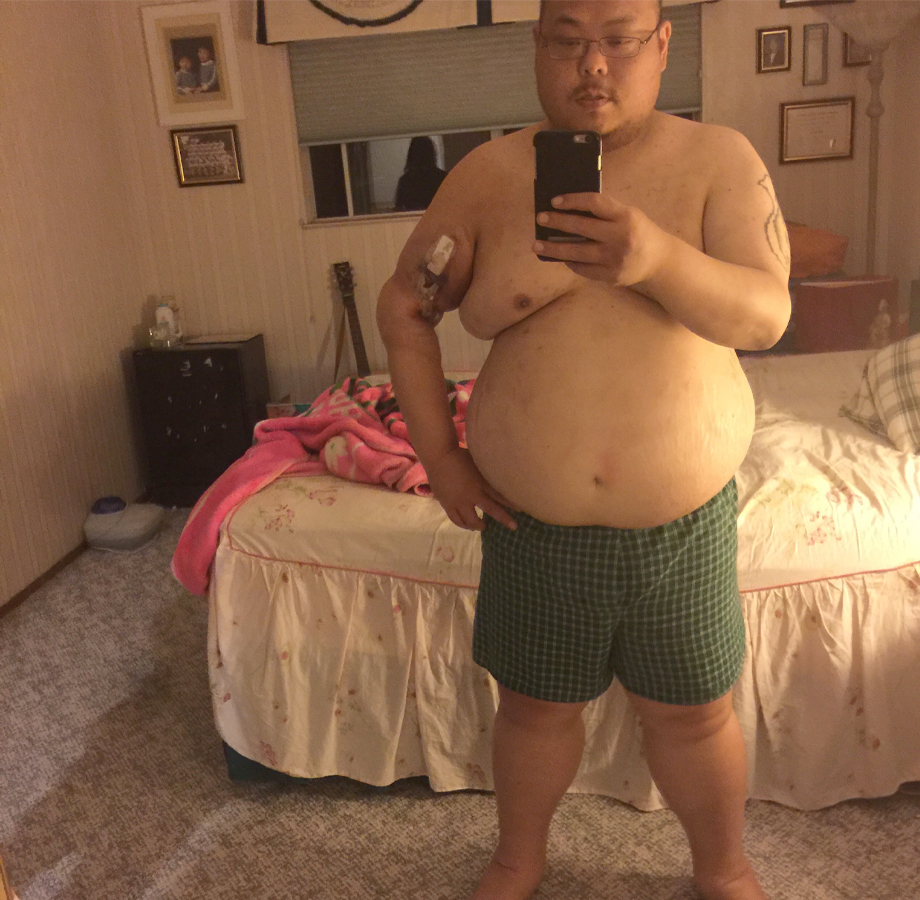
“After my first consultation at UC Davis Health, my back gave out. At 320 pounds, I was so heavy and no one could help me,” he recalled. “I was completely broken — mentally, physically and spiritually.”
Du’s corporate ladder climbing would have to take a backseat. He was forced to undergo dialysis three days a week and join the thousands of others on the transplant waitlist.
“Obesity is associated with multiple surgical and medical complications and has a poor prognosis after transplantation,” explained Junichiro Sageshima, Du’s surgeon and surgical director of the UC Davis Health Living Donor Kidney Transplant Program. “We encouraged Wilson to lose weight to give himself the best chance of enjoying his kidney transplant journey.
That approach could also shorten his wait time.
A study in the Journal of the American Society of Nephrology revealed that morbidly obese patients (those who on average weigh 100 pounds more than their ideal weight) remain on the transplant waiting list two years longer than a patient of ideal weight.
A Renal Warrior
Du recognized the challenges to his health and his odds at getting a transplant. At his low point, he changed his perspective and his trajectory.
“I could not live the rest of my life like this. It was torture,” he said. “I asked myself, ‘What are you going to do, give up or fight like crazy?’”
He chose the latter and painfully fought his way to better health. The first day, he could walk only eight feet. That walk, he says, “was the most painful I’d ever taken.” But in the pain, he felt alive and found an inner resolve to do all he could to get healthy.
“I never looked back,” he said.
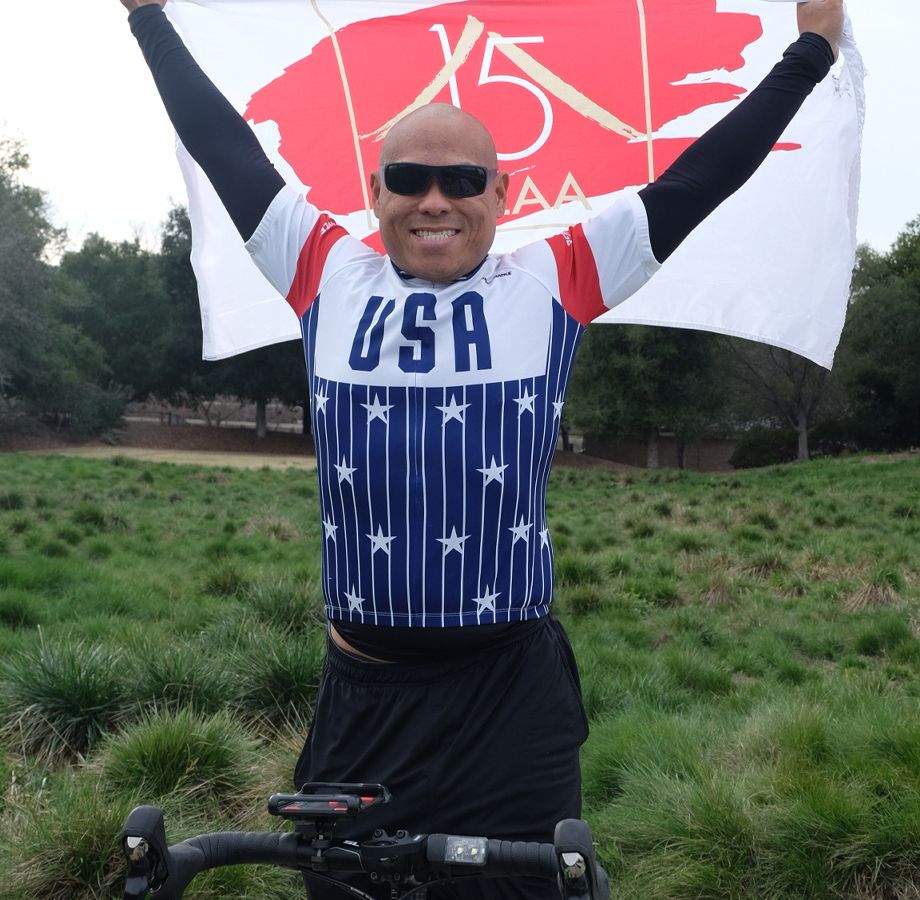
He pushed through the pain. Eventually, he started working out at a gym and eating healthy food that, he says, his mom made taste good. Slowly, the weight started coming off and he accomplished feats he never thought possible. He even took on a new moniker — the Renal Warrior.
In 2018, he pedaled his bike 600 miles from the Bay Area to San Diego in 13 days, stopping only for dialysis treatments. In 2019, he completed a triathlon, including a 1.2-mile swim, 25-mile bike race and 6.2-mile run.
“I was almost last, but I finished it,” he joked.
A warrior faces another huddle
That year, thanks to his much-improved health and a weight approaching 185 pounds Du got placed on the transplant waiting list. And, lucky for him, he had a living donor ready and willing to donate. Once they began the process of matching, he had another hurdle to overcome: Du’s donor, a friend he’d met during his kidney battle, had a different blood type. They could not donate to him.
His next option was a paired exchange pool, a system where both Du and his donor enter as a pair and a computer system finds a match where the living donor can donate a kidney to someone else and the donor recipient can match with another donor. UC Davis Health has had a registry like this since 2005.
“Normally it can be a swap with another pair, or the system will figure out additional pairings that match,” explained Kimber Simmons, the living donor transplant coordinator at the UC Davis Transplant Center.
In this case, Du matched with a donor as did an additional four other pairs, a record for the UC Davis Health team. Unfortunately, one pair ultimately backed out.
Human chain of life
Currently, there are about 30 unmatched pairs in UC Davis Health’s paired exchange program. But this month, the UC Davis Transplant program became the 100th center to be engaged in the National Kidney Registry, the world’s largest paired exchange program.
“Many lives have been saved by the selfless acts of living kidney donors. This membership increases access to living donor transplants for our patients,” Sageshima said. “Without transplantation, one in five patients on the transplant waiting list dies or becomes ineligible for transplantation within five years. In contrast, once a patient receives a living donor kidney transplant, four out of five survive for more than 10 years.”
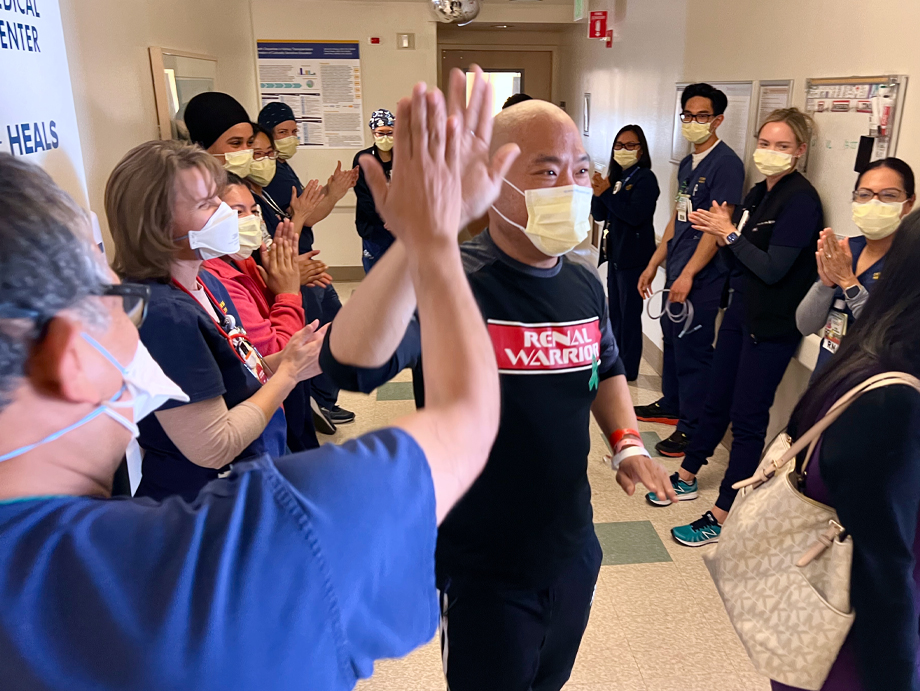
Simmons added: “I love seeing how one person can help another person by giving of themselves. Then to see these recipients getting off the list, off dialysis, moving ahead in their life, it’s an honor and a blessing to be a part of that.”
While it took 15 years for the registry to reach this milestone, it means the growing number of patients who will benefit from this collaboration between transplant centers across the country increases their odds of a shorter wait time for transplant.
A new kidney, a new calling
Du’s successful transplant surgery on March 8 meant, thanks to the paired exchange pool match, his wait was over. He’s now free of the burden of dialysis and free to imagine a different kind of life. “I’ve created an identity around kidney failure. Now I’m like, what do I do?”
Du’s new identity as the Renal Warrior has ignited a passion inside him to help others. On that bike ride back in 2018, he posted on Facebook for other kidney disease patients to follow his journey, even meeting followers along his route to Southern California.
“It was so liberating just to be able to do these physical things. I didn’t focus on the pain – emotional or physical – and I just wanted to inspire other patients,” Du said. “Sharing my story from my point of view shows them if you want to get better and if you’re willing to put in the work, you can.”
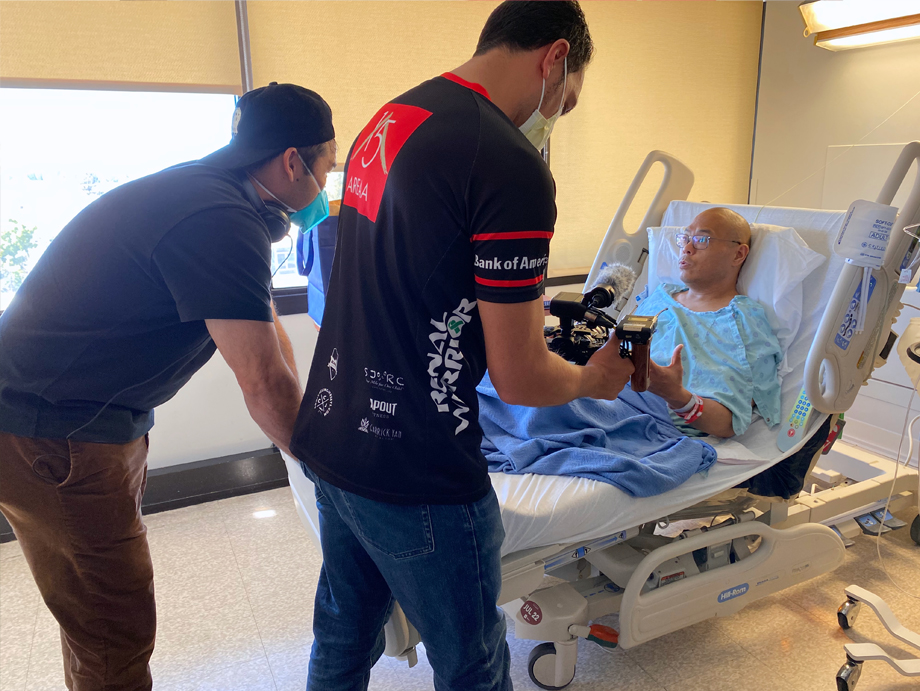
Du has partnered with Brian Cimagala, an independent video producer, to document his journey. He says the disease that literally brought him to his knees has ultimately shown him how strong he is. Now, he wants his story — and a future documentary — to bring hope to others.
“I’d run all the scenarios of diagnosis, battles I’ve faced and, at least for a time, I didn’t think I was going to be alive,” Du said. “I wish I’d had someone like me talking to me back then. I feel like this is my calling.”

